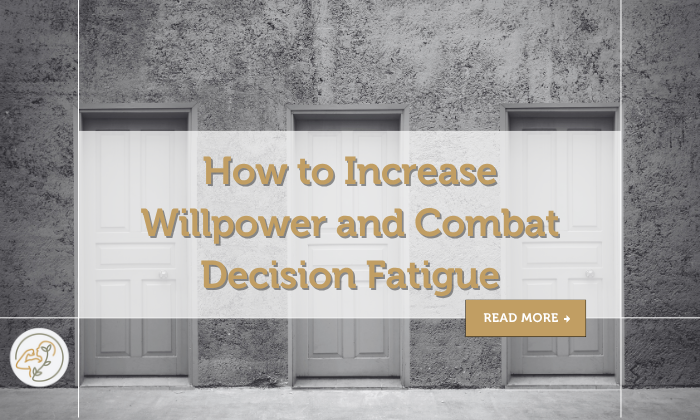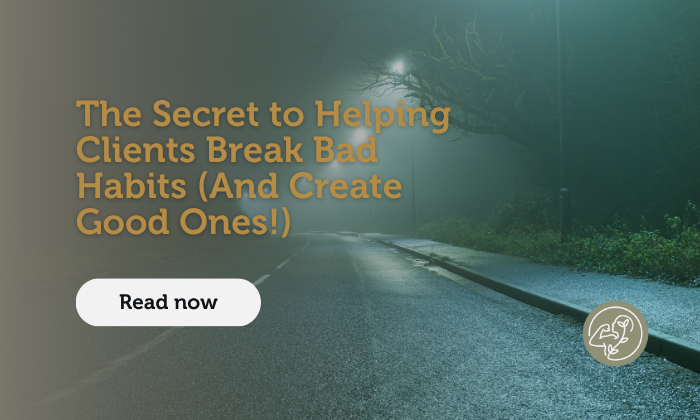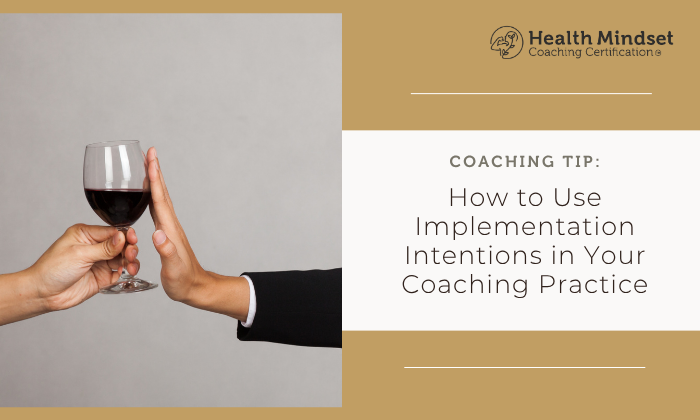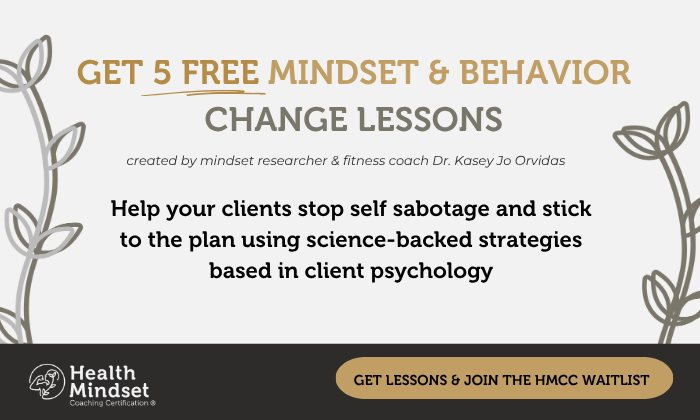Habit Change Coaching: What We Can Learn From Popcorn
Jul 04, 2025
Many people think that willpower drives behavior change, but the truth is that habits run the show.
As a fitness coach, you've probably encountered this with your clients. Even those who mean well and have the best intentions at heart often struggle because they have developed habits that steer them away from their goals.
Think of the client who automatically opens a bag of chips when watching TV, grabs a chocolate bar at the grocery store checkout, or grabs a coffee instead of a meal when they are hungry.
Fitness professionals are not just in the business of getting clients fit and strong, but also in the business of habit coaching because no client will create lasting change if they don't put an end to their bad habits and replace them with healthy habits.
A 2011 study on the power of habits can tell us a lot about how our habits play a role in our behavior.
Table of Contents
Research on Unconscious Habits
What Drives Our Daily Habits
Habit Change Lesson
The Role of Mindset in Habit Change
Become a Better Habit Coach
Connect with us!
Sources
Research on Unconscious Habits
In the 2011 study completed by Neal, Wood, Wu, and Kurlander, researchers invited two groups of participants to watch trailers at the movie theatre.
One group received fresh popcorn, and the other group received stale popcorn.
Prior to the study, each participant was assessed on their typical popcorn eating habits when going to the movies. Researchers looked at whether they always get popcorn at the movie theatre.
The results showed that those participants who didn't regularly get popcorn when they went to the movies chose to eat the popcorn if they were in the fresh popcorn group and chose not to eat it if they were in the stale popcorn group.
However, those who had a habit of eating popcorn at the movies ate 70% of the popcorn they received, regardless of whether it was fresh or stale (because eating popcorn while watching movies is a habit for them).
These weren't the only interesting findings of the popcorn study.
The automatic popcorn eating was eliminated when participants were instructed to eat with their non-dominant hand.
Participants were no longer interested in the stale popcorn when the behavior of eating popcorn became something they had to think about.
Additionally, researchers saw the same effect when they moved participants out of a theater and into a conference room to watch the trailers. They shifted the environment so that eating the popcorn was less habitual.

What Drives Our Daily Habits
As the above study shows, habits aren't driven by hunger or enjoyment. They are triggered by our environment and routine.
Most behaviors, particularly those that take us closer or further from our goals, happen without conscious decision-making. As fitness professionals, we have plenty of healthy habits we don't even think about, but our clients struggle with at least some of these things that come naturally to us — it's part of why they hired a health coach in the first place.
It's important to understand and acknowledge that clients' environments and routines might be the drivers of their unwanted habits and behaviors, which is where mindset also comes into play.
Many clients blame themselves (or are blamed by others) for a lack of willpower. What they need to understand is that habit formation is far more important than willpower, and the more healthy habits they have, the easier it will be to achieve their goals.
It's more effective for people to shift their mindset to address habit cues and routines rather than to try to rely on willpower.
As a mindset shift, you can help your clients reframe failure as a mismatch of environment and behavior rather than a moral failing.
Habit Change Lesson
So, how can you apply the lessons from this research as a health coach or a habit coach?
The first thing we need to acknowledge is that many different aspects impact our behavior, including things that may be habits or even the environment in which we are placed.
Consider how you may be able to increase your client's or shift their environment to better set them up for success if they are struggling with unwanted habits.
You can also think about how you can increase friction on the undesired behavior, such as how the researchers had participants eat with their non-dominant hand. Another approach you'll want to pair with this is finding ways to decrease the friction of a desired behavior, like making it as appealing as a fresh bowl of popcorn.
You can check out this post for more information on using increased or decreased friction for habit formation.
You can also help your clients by habit stacking, which involves creating new routines that are tied to existing cues.
For example, can they spend a few minutes doing mobility work rather than scrolling through social media while their coffee brews?
Another technique you can use based on these research findings is implementation intentions or if-then planning. If I feel X, then I will do Y.
Implementation intentions interrupt default patterns and can help create new habits.
The Role of Mindset in Habit Change
When working toward building new habits, you'll want to help your clients create psychological flexibility. In other words, you want to teach them to respond to their situation rather than react.
Psychological flexibility means being present and aware of your thoughts and emotions, accepting them even if they are difficult, and taking action that aligns with your values and goals.
A great way to help your clients achieve this is to help them cultivate a growth mindset, which will help them create long-term behavior change even when breaking bad habits feels difficult. A growth mindset will help them acknowledge that just because they haven't broken an undesirable habit yet doesn't mean they don't have the ability to do so over time.
Normalizing the challenge of breaking habits and creating healthy routines is also important.
Your client may look at you and think it's all so easy for you because you're already fit, healthy, and have this mindset thing figured out, so you can share with them stories from your journey or from other clients who have been in similar scenarios to help your client realize they are not the only ones who have struggled with a particular issue, which can help build the self-confidence they need to create positive change.

Become a Better Habit Coach
Your role in habit coaching is to help your clients realize that their behaviors are driven by habits rather than motivation or willpower.
You can set your clients up for success by helping them focus on environment, cues, routines, and mindset. Creating a new habit will be significantly easier for any client if they are working from a growth mindset, so this is a crucial component of habit and behavior change.
And if you feel like you don't actually have this whole mindset thing figured out, that's what the Health Mindset Coaching Certification is for!
This 14-week program for health and fitness professionals equips you with the skills you need to help your clients end self-sabotage, break through mindset barriers, and make behavior changes for good.
You'll learn research-backed methods from Cognitive Behavioral Therapy and other psychological tools that will help your clients embrace a growth mindset and create lasting behavior change.
Join the waitlist here, and you'll get immediate access to some free primer materials to get you started!
Connect with us!
Email: [email protected]
IG: @coachkaseyjo @healthmindsetcert
Sources
Neal, D. T., Wood, W., Wu, M., & Kurlander, D. (2011). The Pull of the Past: When Do Habits Persist Despite Conflict With Motives? Personality and Social Psychology Bulletin, 37(11), 1428-1437. https://doi.org/10.1177/0146167211419863






